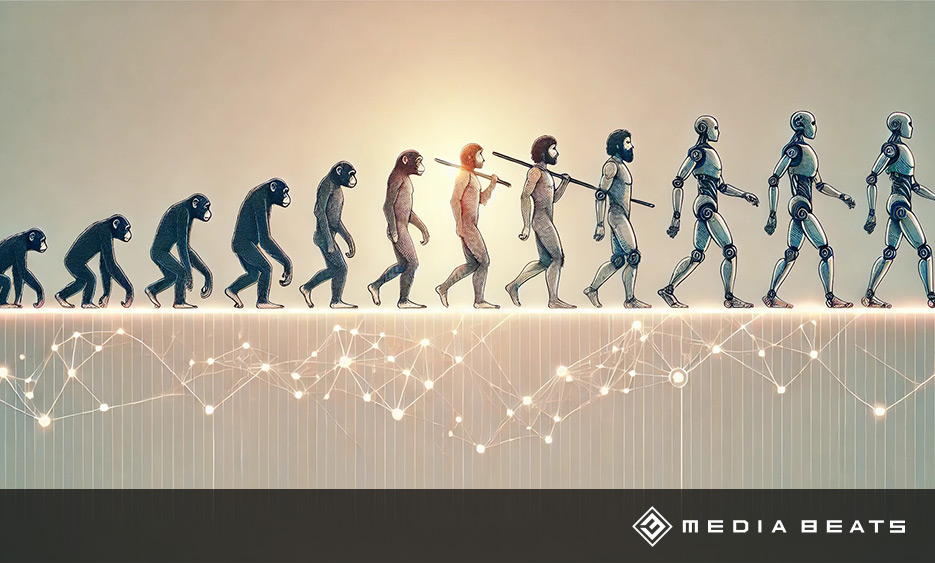
Marketing in the tech age: creativity meets AI for maximum success
The fusion of human creativity and modern technology can fundamentally transform marketing. At the intersection of data, automation, and creative storytelling, new opportunities emerge. Companies can optimize their strategies and gain a decisive competitive advantage. This guide shows how brands can strategically use technologies to enhance efficiency and convey a compelling brand message.
Uniform brand communication: consistency creates trust
The strength of a brand lies in its ability to convey a consistent and authentic story. Fragmented content across different platforms can, however, create conflicting messages and damage customer trust.
How consistent branding is implemented:
- Development of clear brand guidelines: These define the tonality, visual language and values of the brand.
- Use of tools like Digital Asset Management (DAM) to centralize content and make it accessible across teams.
- Regular performance evaluation is crucial: Metrics like conversion rates and social media interactions reveal the impact of content. Such data helps adjust strategies effectively and continuously improve efficiency.
Consistent brand communication not only serves as a differentiating factor but also measurably increases the ROI of marketing campaigns.
AI: A new era in marketing
Generative AI offers new opportunities to make marketing processes more efficient without replacing creative work. Rather, it serves as a supportive tool that strategically complements human skills and knowledge.
Advantages of an integrated AI strategy:
- Personalization at the highest level: AI enables the creation of customized content tailored precisely to the individual needs of different target audiences.
- Optimize account-based marketing: Data analysis enables targeted campaigns that are more relevant and effective.
- Transparency and trust: Disclosing algorithms and data sources strengthens audience trust and promotes the acceptance of AI-generated content.
Companies that strategically use AI lay the foundation for dynamic and personalized customer experiences – one of the key requirements in modern marketing.
Generative AI: personalization on a new level
Generative AI enables the creation of dynamic content at scale, revolutionizing the relationship between brands and customers. It creates personalized experiences such as product recommendations or customized shopping environments that engage target audiences more effectively.
Implementation in practice:
- Automated product recommendations based on purchasing behavior.
- Individual email campaigns with content tailored to the interests of the recipients.
- Creation of interactive content such as chatbots that offer personalized advice.
Clear governance is essential to ensure that generated content reflects the brand values and meets quality standards.
SEO in the age of AI: rethinking visibility
Search engines are increasingly using AI to efficiently identify relevant content. Marketers must therefore expand traditional SEO strategies with innovative approaches.
Important measures for modern SEO:
- Optimization of metadata: Particular attention should be paid to correct and meaningful descriptions for images and videos.
- Content localization: Multilingual content increases reach and improves ranking in regional markets.
- Use of visual content: Images and videos are gaining importance and can boost visibility in search results.
Combining proven SEO principles with modern technologies enables brands to maximize their reach and engage new target audiences.
Technological convergence: keeping an eye on the future
The rapid development of technologies like spatial computing and 3D content is creating entirely new opportunities in marketing. Devices such as the Apple Vision Pro and innovations from Samsung or Microsoft are fundamentally changing how content is consumed.
How marketers can take advantage of these opportunities:
- Testing new technologies to assess their potential for your own company.
- Development of interactive content aimed at immersive experiences.
- Early adoption of trends to be perceived as a pioneer in the industry.
Challenges and solutions
The multitude of available technologies can be overwhelming. However, with a clear and thoughtful approach, these challenges can be overcome effectively:
1. Training and education: Marketers should continuously expand their knowledge of new tools and technologies.
2. Pilot projects: Small test campaigns allow for risk-free experimentation with new approaches and provide insights for larger projects.
3. Strategic partnerships: Collaborating with experts or technology providers facilitates entry and enables faster and more effective results.
Conclusion
The future of marketing combines human creativity with technological efficiency for sustainable success. Brands that seamlessly integrate these elements secure a clear competitive advantage.
Consistent communication, the targeted use of AI, and adaptation to technological trends not only increase efficiency but also create unique customer experiences. The key lies in the willingness to innovate and the ability to adapt to the ever-changing digital landscape.
